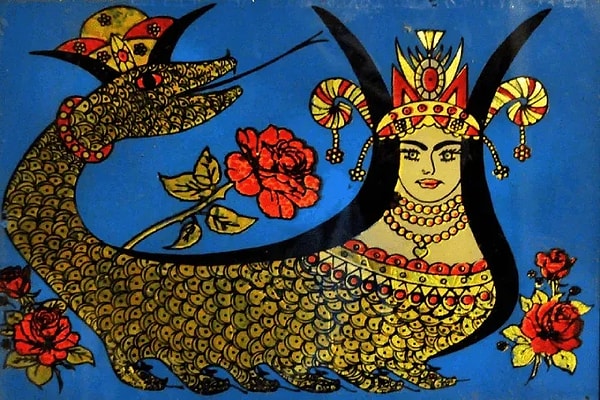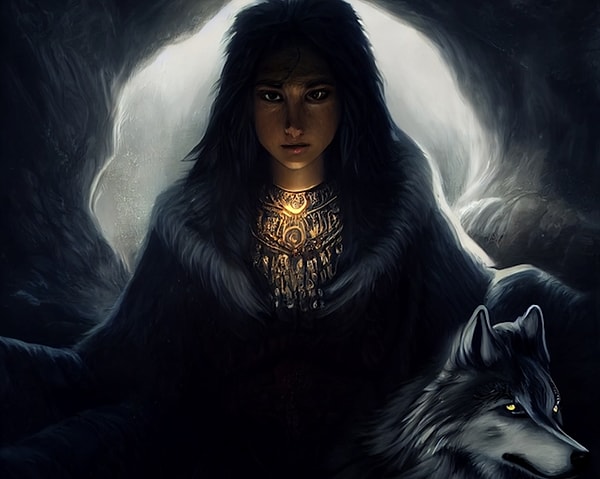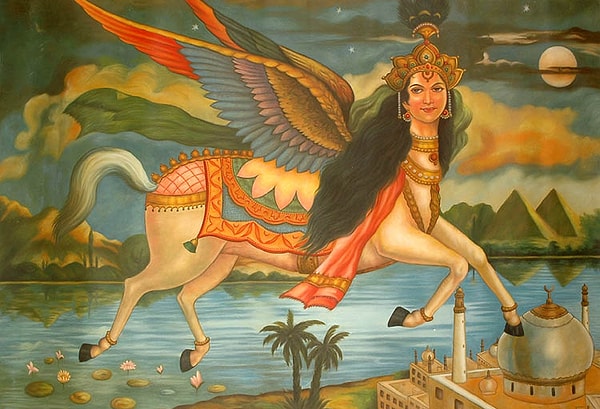Turkish Mythology: The Legends that Reflect the Hearts of People
Turkish mythology is a rich tapestry of ancient tales, legends, and myths. These stories reflect the history and culture of the Turkish people and offer a fascinating glimpse into their beliefs and traditions. In this article, we will explore three of the most intriguing Turkish myths: Şahmeran, Asena, and Buraq.
1. Şahmeran:

The story of Şahmeran is one of the most well-known Turkish myths. This creature is half-human and half-serpent and is said to have lived in an underground kingdom. According to the legend, Şahmeran possessed great knowledge and wisdom and had healing powers that people would travel from far and wide to receive.

However, anyone who wanted to approach Şahmeran had to first solve a riddle. The riddle was as follows: 'What is the one thing that is born each second, lives for only a moment, and then dies?' Many people tried to solve the riddle, but none succeeded. One day, a young shepherd named Ahmed came to the entrance of Şahmeran's underground kingdom. He was determined to solve the riddle and meet the legendary creature.
After much thought, Ahmed came up with the answer: 'A spark.' Impressed by his wit and intelligence, Şahmeran lifted the spell and allowed Ahmed to enter her kingdom. There, she shared her knowledge and wisdom with him, and he became one of her most trusted companions. However, their friendship was not to last, as Ahmed fell in love with a mortal woman and left Şahmeran's kingdom, leading to tragic consequences.
2. Asena:

Asena is a mythical wolf in Turkish folklore, and she is considered the mother of the Turkic people. According to the legend, a gray wolf was injured and taken in by a Turkic family. The wolf then transformed into a beautiful woman and mated with the family's male dog, giving birth to ten half-wolf, half-dog offspring.

One of these offspring was Asena, who went on to become the mother of the Turkic people. According to the legend, Asena nursed and raised the Turkic people, teaching them how to hunt, fish, and survive in the wild. The legend of Asena is often seen as a symbol of the deep connection between the Turkic people and the natural world.
3. Buraq:

Buraq is a winged horse in Islamic mythology who is said to have carried the Prophet Muhammad on his journey from Mecca to Jerusalem. Buraq is described as having the body of a horse and the wings of an eagle, with a long, flowing tail and a mane of fire.

According to the legend, Buraq was given to the Prophet Muhammad by the angel Gabriel, and his journey on the winged horse has become a central part of Islamic tradition. The story of Buraq is often seen as a symbol of the power of faith and the ability of humans to transcend earthly limitations. The journey on Buraq represents a spiritual journey towards enlightenment and closeness to God.
The myths of Şahmeran, Asena, and Buraq are just a few examples of the rich tapestry of Turkish mythology.

These stories reflect the deep connection between the Turkish people and their history, culture, and natural surroundings. They offer a fascinating glimpse into the beliefs and values of the Turkish people and continue to be passed down from generation to generation.
Did you know about these legends before? Let's meet in the comments!
Keşfet ile ziyaret ettiğin tüm kategorileri tek akışta gör!


Send Comment